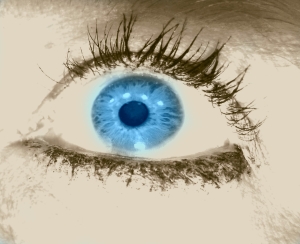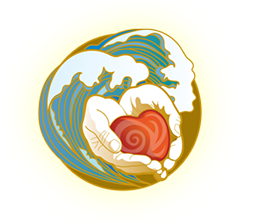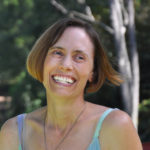One day, a little over ten years ago when I was feeling suicidal, I was explaining to my sister and her husband my rationalization for it being perfectly okay for me to commit suicide. I was sharing how I had realized that if I killed myself, everyone would move on and be fine. People die every day, I said. People move past these things all the time, I explained. I was so deep in my own misery that I then went on to say one of the most cruel and hurtful things I ever remember speaking out loud. You see, my brother-in-law’s little brother had recently died in a car accident. He was  a teenager or at the most in his early 20s when he died. In my utter narcissistic despair and obliviousness, I proceeded to point out to my brother-in-law that obviously he had moved on from the death of his brother, and that that was the proof of my undeniable logic. A deafening silence followed. My sister glanced at her husband. Then she locked her eyes on mine, and I’ll never forgot what she said to me: “Yes, people move on. But nothing is ever the same again. Their lives are changed forever.”
a teenager or at the most in his early 20s when he died. In my utter narcissistic despair and obliviousness, I proceeded to point out to my brother-in-law that obviously he had moved on from the death of his brother, and that that was the proof of my undeniable logic. A deafening silence followed. My sister glanced at her husband. Then she locked her eyes on mine, and I’ll never forgot what she said to me: “Yes, people move on. But nothing is ever the same again. Their lives are changed forever.”
Those words and the energy behind them pierced through the veil of my despair to shake me awake. Needless to say, I didn’t commit suicide. But more than that, never again did I trivialize the depth and breadth of what we experience as human beings in this life, including the deepest grief, despair, and pain. The experience of loss, for instance, is not trivial simply because all of us must endure and move through it at some point in our lives. In fact, the experience can be utterly transformational in the most horrendous and most beautiful ways. Indeed, we will never be the same again.
Recently I ran across an article written by Mark Sandlin called, 10 Clichés Christians Should Stop Saying. Some of these clichés are said by more than just Christians and are generally used in an attempt to comfort ourselves or others going through a challenging experience:
Everything happens for a reason.
God (the Universe) never gives us any more than we can handle.
We could debate (endlessly) whether or not these statements are even true. But more important is how these statements are often used as a subtle way of trivializing our own or another’s experience. I cannot tell you how often people start to share with me the depth of their pain only to stop themselves with a “but” followed by a version of one of these statements. Another common sentence to follow the “but” is, “I’m seeing this as an opportunity for growth.”
It is fantastic to see that everything happens for a reason, or that we can handle whatever is in front of us, or that every situation is an opportunity for growth and evolution. But when we start to use these ideas as subtle ways of avoiding and trivializing our own pain, then we are bypassing the very path we must travel to grow, transform, and heal in the most profound ways.
What is needed for true transformation and healing is the capacity to hold and feel fully both sides of this coin — both the horrendousness and beauty, the pain and the transformative power, the grief and the love. A friend of mine once shared that she calls these situations AFOGs — another f*%&ing opportunity for growth. I love this because the f-bomb acknowledges the pain of the situation, and “opportunity for growth” speaks to the transformative potential. I find that all too often, we want to leave out the f-bomb. We want to avoid the pain at all costs. But when we do this, we are denying an aspect of life itself. As Vera de Chalambert says:
“We must not send suffering into exile — the fear, the heartbreak, the anger, the helplessness all are appropriate, all are welcome. We can’t dismember ourselves to feel better. Difficult feelings need to be given space so they can come to rest. They need contact. We can’t cut off the stream of life and expect to heal.” ~From Kali Takes America: I’m with Her
The capacity to be fully present with both the pain and the inherent transformative power in these situations is often not easy. It takes an ability to differentiate and dis-identify from powerful energies which can be so overwhelming and all-consuming that we literally think they are us. For me, this is a journey. It is a continual discovery that pain and transformative power are often inseparable. It is a journey I embrace because, in that moment when my sister looked me in the eyes, I decided to live.
Visit Penny’s website to learn more about her and her offerings: http://pennyheiple.com

